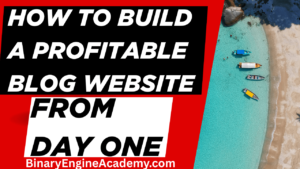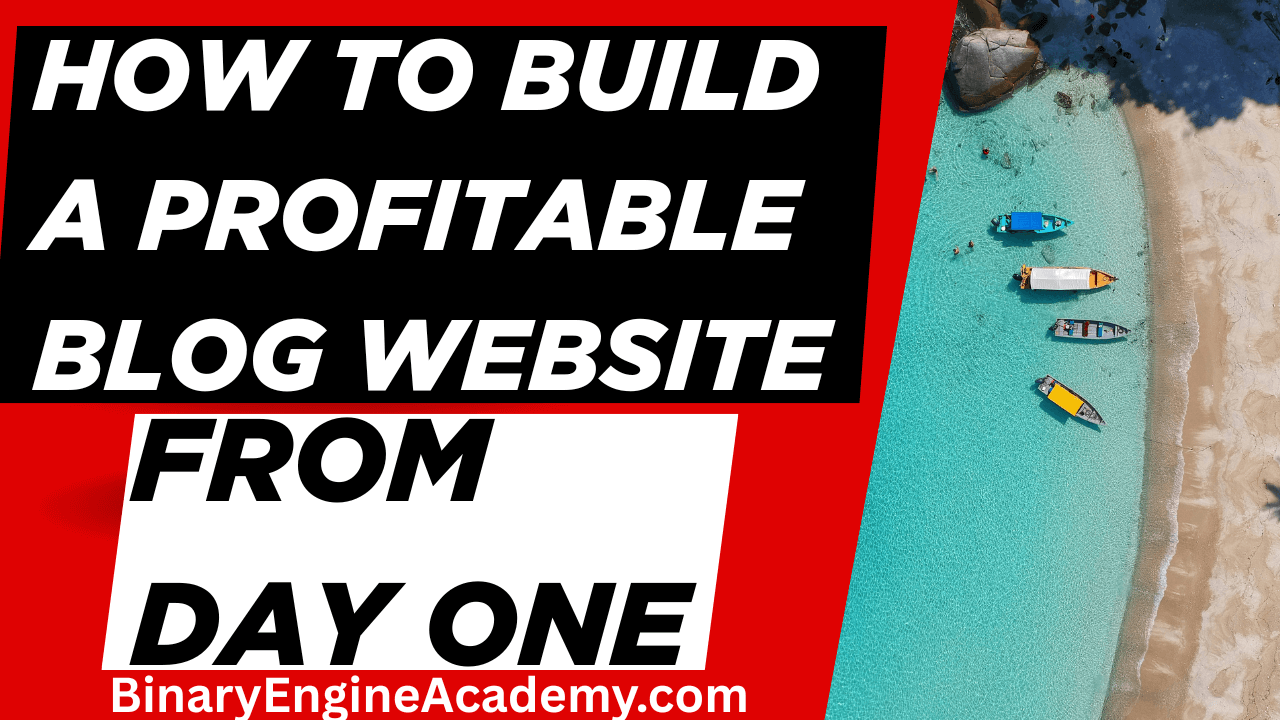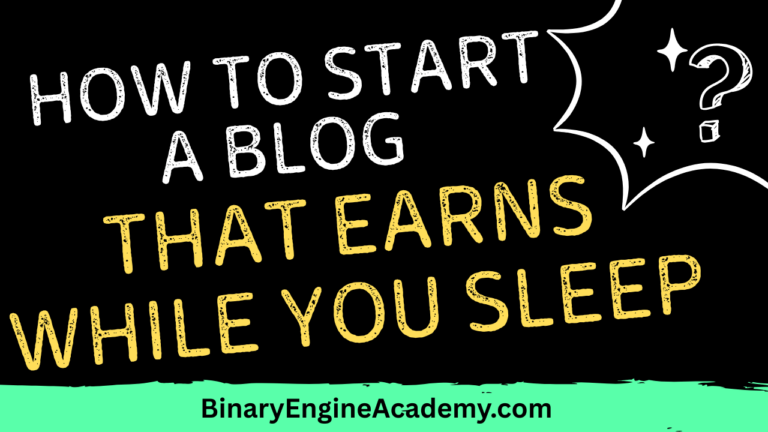How to Build a Profitable Blog Website From Day One

Starting a blog is easy. Making it profitable from the start? That takes strategy.
Whether you’re dreaming of ditching your 9-to-5, building a side hustle, or creating a brand that generates passive income, this guide will walk you through how to build a profitable blog website from day one — the smart way.
Let’s break it down step-by-step.
1. Choose a Profitable Niche (Not Just a Passion)
Sure, you want to write about something you love — but profitability should come first. Passion plus demand is the sweet spot.
Ask yourself:
Is there an audience willing to spend money here?
Are people already searching for this topic?
Are there existing blogs making money in this niche?
Pro Tip: Use tools like Google Trends, Ubersuggest, or SEMrush to see what people are searching for. Look at affiliate programs in your niche — are there products/services you could promote?
Profitable niches in the U.S. include:
Personal finance & investing
Health & wellness
DIY/home improvement
Parenting & family life
Tech & gadgets
Online business or side hustles
2. Pick a Brandable Domain Name
Your domain is your blog’s first impression. It should be:
Easy to remember
Easy to spell
Relevant to your niche
Examples:
SmartMoneyMama.com for a finance blog
DIYNerds.com for a home project site
FitAtHomeLife.com for a wellness-focused blog
Stick with a .com extension — it’s still the most trusted, especially for a U.S. audience.
3. Set Up Hosting and WordPress
Skip the free platforms — they won’t allow you to monetize effectively. Instead, go self-hosted.
Recommended Setup:
Hosting: Bluehost, SiteGround, or Hostinger (beginner-friendly)
CMS: WordPress.org (not WordPress.com — big difference!)
With most hosting services, you can install WordPress in one click.
Choose a lightweight theme like Astra or GeneratePress — fast load times = better SEO and user experience.
4. Design with Conversion in Mind
Don’t get lost in pretty designs. Focus on:
Fast load times
Clear navigation
Easy-to-read font
Mobile responsiveness
Strong calls-to-action (CTAs)
Install plugins like:
Rank Math SEO or Yoast SEO
WP Rocket (for speed)
ConvertKit or Mailchimp (for email capture)
Pretty Links (for affiliate links)
5. Create High-Quality, SEO-Optimized Content
Now it’s time to write content that ranks and converts.
Focus on:
Keyword research: Use tools like Ubersuggest, Ahrefs, or Google Keyword Planner.
Search intent: What is the reader really looking for?
On-page SEO: Include keywords in the title, URL, headings (H1/H2), image alt text, and naturally in the content.
Example Blog Types That Work:
How-tos (“How to Budget on One Income”)
List posts (“10 Easy Keto Meals for Busy Moms”)
Product reviews (“Best Smartwatches for Under $200”)
Tutorials (“Step-by-Step Guide to Building a Raised Garden Bed”)
Keep your tone friendly, helpful, and trustworthy — like you’re chatting with a friend who asked you for advice.
6. Monetize Early (Even With Low Traffic)
You don’t need millions of views to start making money. Here’s how to start earning right away:
Affiliate Marketing
Recommend products/services and earn a commission per sale.
Amazon Associates
ShareASale
CJ Affiliate
Impact
Individual brand affiliate programs
Digital Products
Create and sell:
E-books
Templates
Printables
Online courses
Services
If you have a skill (writing, design, consulting), your blog is a trust-building funnel.
Ads (when traffic grows)
Start with Ezoic (easy entry for beginners), then move to Mediavine or AdThrive when you hit higher traffic benchmarks.
7. Grow Your Audience with Smart Marketing
Your blog won’t go viral on its own. Promote it!
Start with:
Pinterest: Great for U.S. lifestyle and DIY bloggers
Instagram or TikTok: Share quick tips or visual content
Email marketing: Start collecting emails ASAP!
SEO: Optimize every post for long-term traffic
Focus on one or two platforms — don’t try to do it all at once.
8. Track, Tweak, and Scale
Once you’re live and running, track what’s working and what’s not.
Google Analytics: What content brings traffic?
Search Console: What are you ranking for?
Affiliate dashboards: What products are converting?
Double down on what works. Repurpose your best content. Update and reoptimize older posts every few months.
From Zero to $37.76 Billion: How Blogging Built HubSpot Into a Marketing Giant When no one knew their name, HubSpot wrote blog posts. That’s it. No ads, no fancy tricks—just pure, valuable content. Fast forward to 2025, and they’re worth $37.76 billion USD. Their secret? Blogging was the engine. Want to grow like HubSpot? Start creating your blog and start writing. It all starts with one click.




















